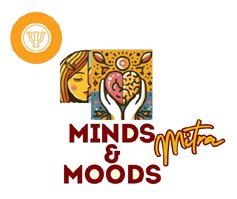Finding Your Way through Grief: A Guide to Grief and Loss Counselling
Grief is a natural response to loss, a deeply personal journey that can feel overwhelming and isolating. Whether it’s the loss of a loved one, a job, a relationship, or a major life change, grief can manifest in many forms. While some individuals navigate this process with the support of friends and family, others may find it difficult to cope. This is where grief and loss counselling provides vital support, offering professional guidance to help process emotions and find a way forward.
A Trusted Professional in Nagpur: Rrimi Bodalkar
Rrimi Bodalkar, a Senior Psychotherapist and Mental Health Counsellor in Nagpur, is a highly respected professional known for her compassionate approach. With an M.A. in Psychology (Counselling) and a PGDMH (Clinical), she specializes in CBT, REBT, and DBT. She also holds certifications in Psychometric Analysis and Learning Style Assessment, allowing her to address diverse concerns such as depression therapy, anxiety treatment, confidence building, negative thinking counselling, and relationship counselling. Her expertise also extends to anger management counselling, workplace stress counselling, burnout recovery, and public speaking anxiety treatment.
Understanding Grief and Its Symptoms
Grief is not limited to sadness—it is a complex set of emotions that can impact both physical and mental health. Common symptoms include:
- Emotional distress: Intense sadness, guilt, anger, anxiety, or emotional numbness.
- Physical symptoms: Fatigue, headaches, sleep disturbances, appetite changes, or lowered immunity.
- Cognitive effects: Memory problems, difficulty concentrating, or a sense of disconnection.
- Behavioral changes: Withdrawal from social activities, irritability, or lack of motivation.
These symptoms may interfere with work, relationships, or daily life, often requiring professional help from a psychotherapist or counselling center.
Causes of Grief
While the death of a loved one is the most recognized cause, grief can arise from multiple forms of loss, such as:
- Death of a loved one: Family member, friend, or even a pet.
- Relationship changes: Divorce, breakup, or estrangement.
- Major life transitions: Retirement, relocation, or a serious health diagnosis.
- Job or career loss: Unemployment and its financial or emotional impact.
- Loss of dreams or identity: Coping with illness or life events that alter one’s future.
Children and adolescents may show grief differently and often need support from a child psychologist or parenting support counsellor.
The Counselling Process: How It Helps
A grief and loss counsellor provides a safe and non-judgmental environment to explore emotions. The therapeutic process typically includes:
- Initial Assessment: Understanding the client’s experience of loss, coping skills, and support system.
- Talk Therapy: Sharing feelings and memories with therapeutic guidance using CBT, DBT, or REBT.
- Coping Strategies: Mindfulness, journaling, relaxation, and other practical techniques to manage grief.
- Building Resilience: Helping individuals integrate the loss into their lives while fostering strength for the future.
- Personal counselling: Addressing associated concerns like depression, anxiety, or life transition counselling.
In some cases, counselling may also involve relationship counselling or couple therapy to support families navigating grief together.
Frequently Asked Questions (FAQs)
Q1: How do I know if I need grief counselling?
A: If grief affects your daily functioning, relationships, or work for a prolonged period, professional counselling can help you move forward.
Q2: Is grief counselling only for adults?
A: No. Children and adolescents can also benefit from child psychologists and parenting support counselling designed for younger age groups.
Q3: Can grief counselling help with relationship issues?
A: Yes. Couple therapy and relationship counselling are effective for partners and families grieving in different ways.
Q4: Can grief therapy also treat depression and anxiety?
A: Absolutely. Since grief often overlaps with depression and anxiety, therapies like CBT and REBT are used for mood disorder interventions.
Q5: Does grief counselling help with non-death losses?
A: Yes. Losses such as career changes, retirement, or illness are equally valid reasons for life transition counselling or career counselling.

